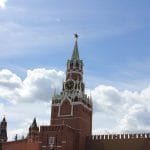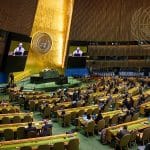In line with global trends, deliveries of COVID-19 vaccine supplies to Southeast Europe increased in April, but the record to-date shows it was anything but a steady supply. In most cases, the non-EU countries in the region are still running relatively small vaccination programs with tightly constrained supplies arriving from multiple sources.
A plethora of sources, but very limited quantities
Vaccine supplies are reaching the region through several routes. These include direct purchases by the Western Balkan countries themselves, but also deliveries from the World Health Organization (WHO) under its global vaccine distribution system for low-income countries named COVAX, as well as donations directly from the EU. Finally, direct bilateral donations and early purchases have arrived from several countries, usually in symbolic quantities, which have been used to support several levels of so-called “vaccine diplomacy.”
Serbia reigns supreme
Serbia retains the number one spot in Southeastern Europe in terms of vaccinations per capita, surpassing even the EU member states in the region including Greece, Croatia, Romania, and Bulgaria in doses administered per capita. Serbia took an early lead in acquiring vaccine supplies, enabling it to make small symbolic donations to neighboring states that formerly comprised the Yugoslav Federation, as well as opening the country to a small amount of “vaccine tourism” from countries farther afield.
According to government figures, 1.3 million people out of the country’s total population of around 7 million have been fully vaccinated with either the Sinopharm, Pfizer-BioNTech, Sputnik V or Astra Zeneca vaccines. This accomplishment places Serbia into one of the global top tiers for its vaccination program.
However, to combat a decline in vaccination rates, President Aleksandar Vucic announced a plan on May 5 to begin paying a small stipend to those citizens who receive at least one vaccination before the end of May.
Another EU roadshow, but this time with valuable cargo
New Europe readers will recall in April the Commission announced, via the coordinating country Austria, that a total of 651,000 Pfizer-BioNTech doses are being donated to Western Balkans countries over the next few months. Weekly deliveries will continue through August, with an extension of the program considered likely.
This week’s delivery came under the auspices of Enlargement Commissioner Oliver Varhelyi, who was finally able to visit the region bearing more than the promises and the encouraging tweets heard since the start of 2021. The deliveries were paid for under a 70 million Euro package adopted by the Commission last December. Varhelyi visited Serbia on May 3, followed by stops in Bosnia-Herzegovina, Montenegro, and North Macedonia on May 4 and finally Albania and Kosovo on May 5. Quantities delivered along the way were particularly small (in the low thousands at each stop) as Varhelyi was traveling in a small private-sized jet plane.
In Albania, Varhelyi also stated that the country is now ready to hold its first intergovernmental conference with the EU, which is the procedure that will formally launch Albania’s EU accession process.
COVAX covering critical needs
The WHO’s COVAX program has been a key initial supplier for much of the Western Balkans, especially in the dark months of early 2021 when vaccine supplies were tightest. Exact figures are unavailable, but some sources note around 300,000 doses for the Western Balkans region have been ordered via the COVAX program so far, much of which is supported by EU funds, as well as other donors.
Direct purchases
Obviously, the Western Balkans countries have accepted nearly every opportunity to obtain goodwill donations or sign supply contracts from any and all suppliers, especially Russian and Chinese. China’s Sinopharm vaccine sales to Serbia have been essential to that country’s program, and direct deliveries are now proceeding to Montenegro and North Macedonia, following some small donations from Serbia.
Media reports about sizeable new Chinese and Russian vaccine delivery contracts with Western Balkans countries are seen practically every day but reports of confirmed deliveries are still minimal. Media reports of small Turkish vaccine donations to Albania are also sporadic and difficult to confirm, but Albanian officials have claimed a significant deal with Chinese producer Sinovac arranged through Turkey will yield large deliveries later this year after an initial delivery was made in late March.
COVID-19 vaccine supplies trickle into Southeast Europe
To a starving region, limited quantities being delivered are better than being forgotten
- Advertisement -
- Advertisement -







